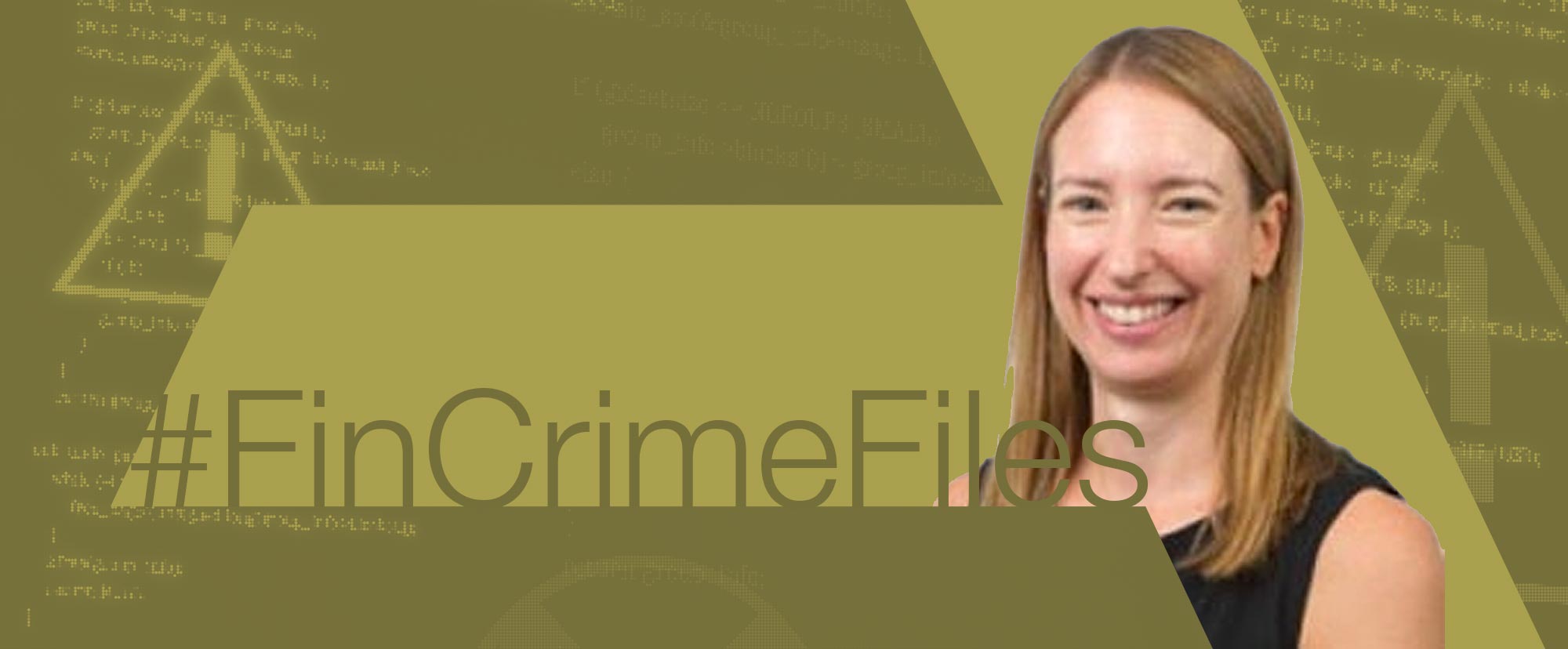3 min read
The FinCrime Files – Q&A with Colette Best, Solicitors Regulation Authority
![]() AML RightSource
:
March 01, 2021
AML RightSource
:
March 01, 2021

In this edition of our FinCrime Files interview series, we caught up with Colette Best, Director of anti-money laundering at the Solicitors Regulation Authority.
Q. Hi Colette, could you tell us a little about yourself and your current role?
I have worked at the SRA for a little under six years, previously in the policy team but taking up the role of Director of AML when a new specialist department was created two years ago. Before the SRA I have worked in various policy roles, all with an element of AML in them working with estate agents, mortgage lenders and in investment. I have loved working to prevent money laundering throughout my career and my current role is basically my dream job!
Q. What do you consider to be the current top 3 challenges in relation to fighting financial crime in 2021?
At the moment, the rate of change feels like a major challenge. Since 2017, we have been reacting to a conveyor belt of legislation and changes which makes the 10-year period prior to that. When we had fairly static legislation, that feels like a distant dream. I can completely understand why some firms say it’s hard to keep up.
Secondly, on a similar theme, keeping up with how quickly criminals change tactics to launder money is a real challenge for us and for the industry. This has been particularly acute during lockdown when society has changed so quickly and so completely. It’s really important for firms to be reading documents such as the national risk assessment and our updated sectoral risk assessment (published on 1st February) and to understand how the threat is changing.
Finally, we need to change the compliance culture of some firms away from a tick-box approach to a more inquisitive and questioning approach to preventing lawyers from being used to launder money. Some firms are doing this really well, but others are still stuck in the mentality of ‘collect a passport and utility bill and tick the AML box’.
Q. The legal sector has been identified as a high-risk industry for money laundering. Last year, the SRA set out to test a sample of every firms’ AML policies each month to tackle these concerns, alongside the low number of SARs filed by solicitors. Can you comment on the progress on this initiative?
We have a relatively new proactive AML team, which has several ways of engaging with firms to check that they are complying with the regulations, help them into compliance, and take action in the more serious cases. We have completed one round of visits to firms and published a report on our findings. Overall we found that firms get how important this area is and are trying their best to prevent money laundering. We found the three biggest areas that firms were struggling to comply with were independent audit, staff screening and customer due diligence.
Our visits are ongoing, but being conducted remotely due to Covid-19, as it is a monthly desk-based exercise to look at firms’ policies procedures and controls, and some files.
I have seen changes in how seriously firms take preventing money laundering, and the vast majority of firms we see are doing their best to stop criminals from using their firms.
Q. You have previously worked within financial services policy before moving into the legal regulation world – what would you say from experience are the major differences between AML investigations or processes between these sectors?
I’ve been lucky to work with estate agents, financial services and the legal sector. It’s hard to draw a direct comparison because the standards change so quickly. When I was working with estate agents at RICS, and with mortgage lenders at the Building Societies Association, the 2007 money laundering regulations were in force. However, all sectors have made major changes as a result of the 2017 regulations and 2019 amendments coming in. Reporting suspicious activity in the legal sector is more challenging than other sectors because of legal professional privilege.
Q. We’ve been talking a lot recently about the friction points with onboarding, ongoing monitoring and AML investigations. Do you see AI and automation as part of the solution to improve these processes in the legal world?
I worry about calling it automation, which to me implies delegating decision-making to software programmes rather than taking a considered case-by-case approach. But technology can definitely help firms to get good information and to take decisions about whether to act for clients and how risky the transaction is. The technology available has come such a long way over the last few years, and given the remote working situation we currently find ourselves in, the use of electronic due diligence can be a good option for some firms. Firms seeking to use technology should make sure they understand how it works and what data it is drawing on, and FATF has published some excellent guidance on this. Ultimately, you shouldn’t be afraid to challenge the results of technology and if you are suspicious, that still needs to be reported.
Q. Which key influencers/podcasts/books do you recommend to keep up-to-date with the latest developments in AML and financial crime? Or, where do you find inspiration in general?
There are so many great resources out there, in particular FATF publishes some excellent guidance. On the investigative side, there are excellent articles by Transparency International, Luke Harding and Oliver Bullough (many of the team read his excellent Moneyland). The Dark Money Files and RUSI podcasts are both excellent. I enjoy Susan Grossey’s ‘I hate money laundering’ blog, and particularly enjoyed the festive post on how you might do CDD on Santa. But my biggest shout out is the talented and dedicated team that I work with, who inspire me every day and have kept me sane during lockdown.

